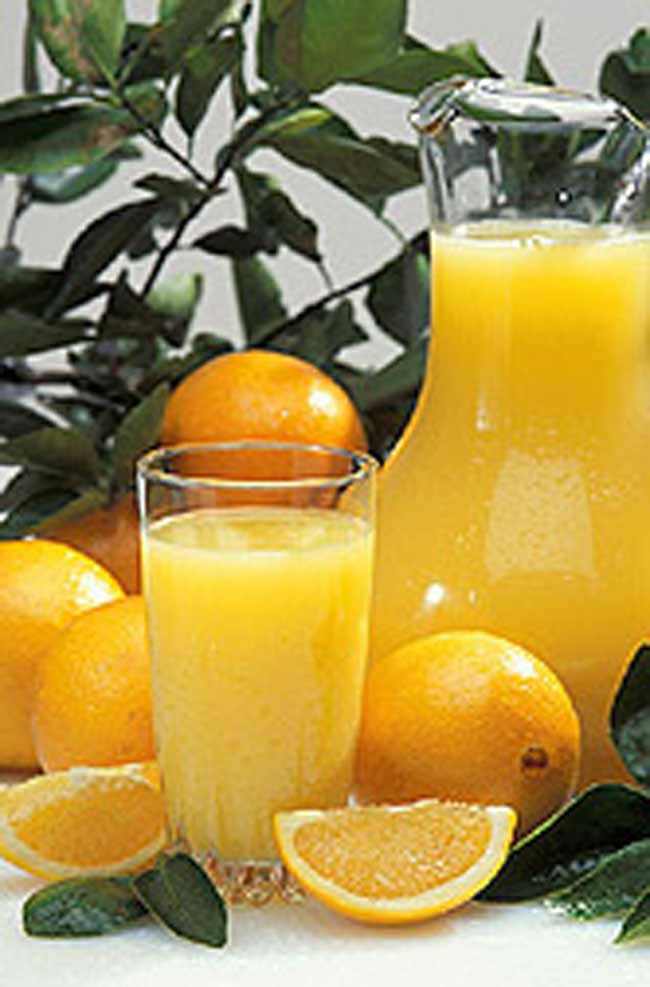Oatmeal and OJ: Breakfast of Champions?

Oatmeal and orange juice are ideal breakfast foods. So say the makers of oatmeal and orange juice in their marginally legitimate study published in the November issue of the American Journal of Clinical Nutrition.
No word yet whether the scientists at Cookie Crisp are planning a rebuttal.
That oatmeal and orange juice can be healthy is no earth-shattering news. What this study claims is that choosing such foods for breakfast is associated with making better food decisions later in the day, which may help folks manage their weight.
That's intriguing. The study results are inherently dubious, however, because the research was conducted by the Rippe Lifestyle Institute, which is funded by the Breakfast Research Institute, which — yes, keep going — is funded by Quaker and Tropicana. Rippe has been behind other Quaker health claims, too.
Starting the day right
Breakfast meals vary greatly by culture, from a generous serving of rice, vegetables, fish and miso soup in Japan to just a cup of coffee in parts of Italy. Recent research reveals that a healthy and filling breakfast is associated with healthy weight, lower cholesterol and better concentration at school or work.
In fact, a study not funded by industry, published in September 2008 in Public Health Nutrition, found that breakfast quality is positively associated with better mental health among adolescents. And a study from 2006 found that consuming complex carbohydrates such as oatmeal is associated with better daily school performance. Also, whole grains such as oatmeal and particularly barley are proven to lower bad cholesterol levels.
Get the world’s most fascinating discoveries delivered straight to your inbox.
Conversely, skipping breakfast or eating fatty and sugary processed foods is associated with obesity, diabetes and poor school performance.
The reasons are not entirely clear. But a big breakfast likely reduces the chance of snacking on high-calorie foods. And complex carbohydrates perhaps feed the brain a steady flow of glucose fuel.
Reasonably sound study
The Rippe Lifestyle Institute study examined publicly available data from the National Health and Nutrition Examination Surveys, 1999–2004. The researchers wanted to assess the energy density of various kinds of breakfasts — that is, ratio of calories to grams. Doughnuts have a high energy density; oatmeal has a low energy density, packing fewer calories but more nutrients per gram compared to doughnuts.
The study found that breakfast eaters had a healthier daily diet compared to those who skipped breakfast, with more foods of the low energy density variety. And among breakfast eaters, as the energy density of the breakfast went up, so too did the daily intake of fat and other high energy density foods.
Results coming to a package near you
Quaker and Tropicana are thrilled with the results. In coming months, these two PepsiCo-owned divisions will likely boast of these results in their advertisements, as they have done in the past. The press release from the Rippe Lifestyle Institute mentions oatmeal three times and orange juice twice as primary examples of foods with lower energy density"
All the study demonstrated, though, was that people who make a conscious decision to eat a healthy breakfast tend to eat healthy throughout the day. Oatmeal and OJ didn't change their being; nor are these foods superior to other food with lower energy density.
Just because a study is industry-funded doesn't make it wrong. Rippe, in fact, was ahead of the curve in finding (in a PepsiCo-sponsored study) that high-fructose corn syrup is similar to table sugar in its effect on the body. The problem is that industry wants positive results and often crafts a study until its researchers get it "right."
Also, in the hands of non-industry-funded researchers, the emphasis of this study would have been on a wide variety of food with lower energy density, such as barley, wheat porridge, whole grain toast, many commercial cereals, whole fruit (instead of fruit juice), tea... and oh yeah, oatmeal, too.
Not all oatmeal created equally
Actually, one needs to be careful buying into the oatmeal hype. Plain oatmeal is indeed healthy. But packaged products such as Quakers’ Instant Maple & Brown Sugar have twice as many calories as plain oatmeal, largely from the 13 grams of sugar, the same amount of sugar as Cookie Crisp.
Orange juice is high in sugar and calories and low in fiber, exactly what the study itself said we should avoid. (Orange juice isn't mentioned in the study itself, only the press release.) The simple message of "eat more oatmeal and drink more orange juice" could be perverted to adversely affect your health.
The science of metabolism and diet is complicated enough. Too bad it is complicated further by industry-funded studies.
- Good Food Gone Bad
- 10 Easy Paths to Self Destruction
- Nutrition Quiz
Christopher Wanjek is the author of the books "Bad Medicine" and "Food At Work." His Bad Medicine column appears Tuesdays on LiveScience.

Christopher Wanjek is a Live Science contributor and a health and science writer. He is the author of three science books: Spacefarers (2020), Food at Work (2005) and Bad Medicine (2003). His "Food at Work" book and project, concerning workers' health, safety and productivity, was commissioned by the U.N.'s International Labor Organization. For Live Science, Christopher covers public health, nutrition and biology, and he has written extensively for The Washington Post and Sky & Telescope among others, as well as for the NASA Goddard Space Flight Center, where he was a senior writer. Christopher holds a Master of Health degree from Harvard School of Public Health and a degree in journalism from Temple University.


